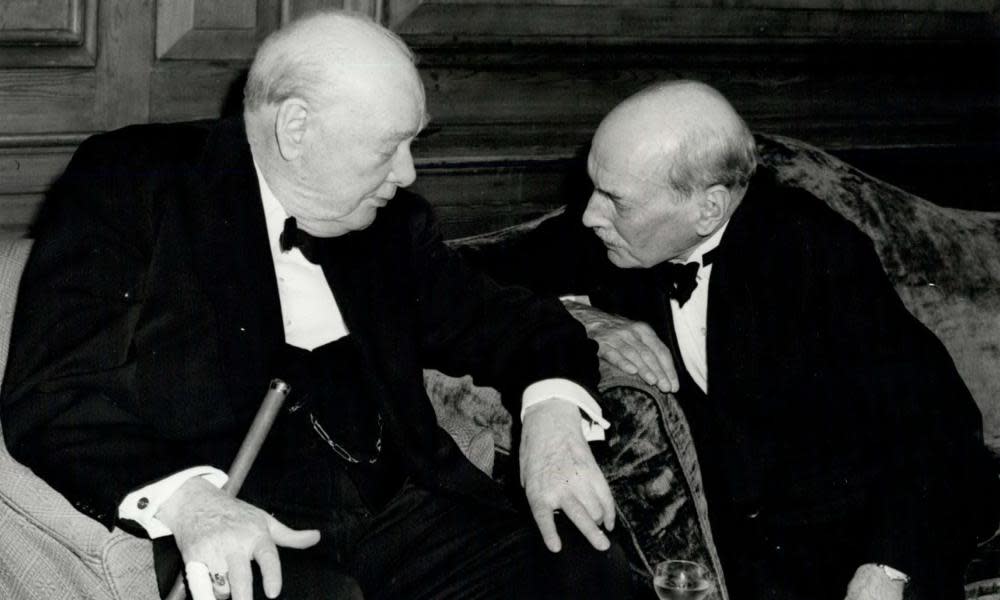How will the UK function with a sick prime minister?

Cabinet government had for most of this week already been replaced by Zoom government, but the fact that Boris Johnson has contracted coronavirus, and so been forced to self-distance himself from the nation that he rules, raises awkward questions about how the government control room will operate at probably its most testing moment.
No 10 has offered the reassurance that Johnson, rather than his deputy, the foreign secretary, Dominic Raab, will if possible remain in charge, making the vital decisions in physical isolation in his flat in No 11 for the next week, connected to colleagues only by technology. If so, it brings a new meaning to the oft-repeated dictum that it is lonely at the top.
The promise that Johnson will remain in charge may be true, or just a holding operation designed to portray an air of serenity in these most abnormal and panicky times. This is an illness that can knock the fittest figure sideways, so it is too early to say how far he will be driven into his bunker.
Johnson is also someone who thrives in direct personal contact with others, cheering up a room and instinctively reading the mood of the meeting or the audience before coming to a view. It is said he does his boxes, but values a discussion more.
default
Yet the political leader as recluse is something other countries have absorbed. Justin Trudeau, the Canadian prime minister, has been in isolation for a week after his wife, Sophie, contracted the virus, leaving him in sole charge of three children and a country bordering Donald Trump. He works from his study and ventures out each day on to the doorstep of his home to hold a press conference. No one else enters except for a single technician with rubber gloves to fix up a G7 Zoom conference. No red boxes, but a box of Lego has been delivered. His children, his aides say, have occasionally been told to shush because “Daddy is on an important call right now.”
But in Canada, it was only the prime minister’s wife who was incapacitated. In the UK, the virus has hit the bullseye.
The civil service has experience of working its way round vacuums in power, and Johnson is not the first British leader to be incapacitated in government. Tony Blair needed time off for a heart operation, prompting Lord Levy’s wife, Gild, to send him chicken soup, and Clement Attlee’s knee joints became so rickety he could not broach stairs.
While the Suez crisis cannot be blamed solely on a high fever, Anthony Eden, suffering from an infection of the liver ducts due to a botched operation, became excessively reliant on amphetamines during the autumn of 1956, which might go some way towards explaining his series of miscalculations. Theresa May struggled with diabetes as well as Brexit. Harold Wilson resigned prematurely, sensing that mental exhaustion had overtaken him.
Johnson’s own great hero, Winston Churchill, suffered two serious illnesses during the second world war, first in February 1943 and then in August 1944. On the first occasion, after an eight-and-a-half-hour flight from Algiers, he came down with a cold and sore throat. It took two doctors – his personal physician, Sir Charles Wilson, and Geoffrey Marshall, a physician at Guy’s hospital – to persuade him of the seriousness of his illness.
Churchill spent a fortnight battling with doctors, nurses and civil servants to ensure that they sent him a steady supply of decisions to make. Even as far away as the US, he developed a reputation as “the world’s worst patient”.
On the second occasion, he contracted pneumonia at the age of 70, an illness so potentially serious that his condition was never made public. Again, the supply of papers to his bedroom was curtailed, with only the most critical allowed to enter his chamber. At times Churchill flew into a rage when he realised how much was being held back from him.
Johnson, unlike some of his aides, probably does not seek to monopolise power and has not been in office long enough to have adopted a definitive governing style. The outbreak of the virus had prompted a reorganisation of his administration in which he was at the apex. Four subcommittees reported to him, marking a formal centralisation of power in No 10 and the Cabinet Office. So his absence will be felt.
Related: Tell us: have you been affected by the coronavirus?
On the other hand, the ship of state’s broad course has now been set after an initial fortnight of confusion. No matter how hard the headwinds, no great adjustment is planned, so it is not the worst moment for the captain to be forced below deck.
Two great qualities will be demanded in the next fortnight. The first is a tireless focus on implementing the decisions taken, the remorseless grind of following through and making sure the Whitehall machine delivers. Any minister at the heart of the response to the financial crash in 2008 will recall the sensation of pulling a policy lever in Whitehall, only to realise the lever was entirely disconnected from the real world.
Decisions taken and announced are not decisions implemented. Johnson’s forte is not in enforcement, so he will not be missed in that department. The Treasury, Work and Pensions, Revenue & Customs and health and business are the lead ministries.
But if Johnson is truly forced to leave the scene for more than a week, and the national death toll mounts, he will be missed as the person to reassure the nation that recovery is in sight. David Cameron described it as “the sunny uplands” passage of a speech. It is not a speech that can be delivered from a sickbed.


